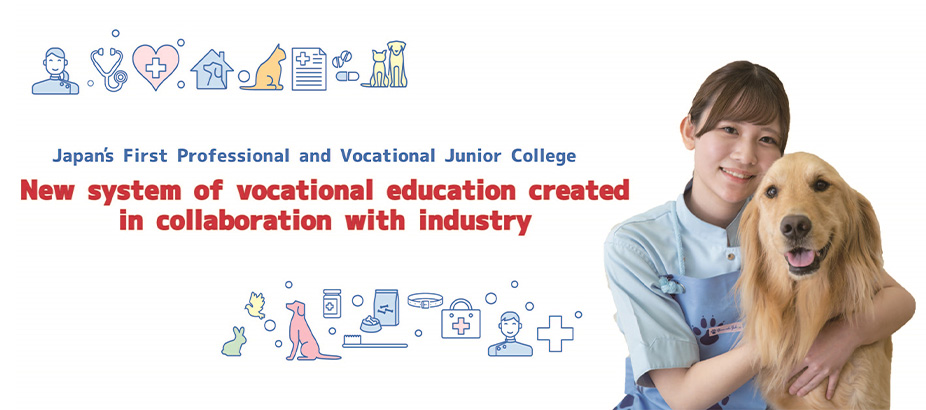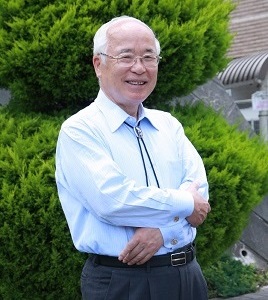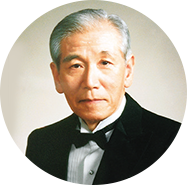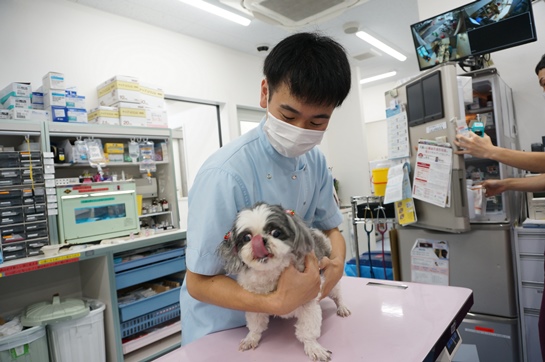About Yamazaki Professional Collage of Animal Health Technology

What is a "Professional and Vocational College" ?
What is a "Professional and Vocational College" ?
The Professional and Vocational Colleges provide students with both the theoretical and practical knowledge to become professionals in specific occupations. The curriculum is developed in collaboration with organizations and the local community and includes not only lectures but also plenty of on- and off-campus practical training.
Upon graduation, students are expected to quickly become professionals and leaders in the field.
Upon graduation, students are expected to quickly become professionals and leaders in the field.
Characteristics of Professional College
At least 1/3 of classes offer practical training and practical skills
- Acquire advanced "practical skills" which will be invaluable after employment through extensive 450-hour on campus practical training and 450-hour off-campus training
Education by teaching staff, Practitioner Veterinarians
- More than 40% of full-time teaching staff are practitioners with relevant work experience and advanced practical skills
- Half of the practitioner teachers have research skills

Balanced theoretical and practical studies
- Classes are given by both researchers who are familiar with the theory and practitioners with extensive field experience in various fields
- In principle, classes are limited to no more than 40 students

Long-term practical training at veterinary hospitals and animal-related companies to gain hands-on experience in the field
- Practical training at off-campus veterinary hospitals and animal-related companies for a total of 450 hours
- Develop knowledge and skills in hands-on situations, as well as a problem-solving ability
Acquire applicable skills by studying other fields relevant to the selected major
- By studying beyond a single specific major, you can become a creator of new ideas and lead changes in the industry or profession in which you work

A bachelor's degree can be obtained by graduating from college
- An internationally acceptable bachelor's degree (professional degree) is awarded. In an era of borderless job markets, this is an ideal professional passport.
- Employment, graduate study or international exchange as a college graduate

Message from the Dean

Dean, Professor
Yamakita Nobuhisa
In 2006, the term "occupation" was codified into law by a revision to the School Education Act, leading to universities and colleges containing the word "professional" in their titles. There are three main differences between such professional universities and colleges and vocational schools.
The first is the guarantee of international competence in the form of a degree. The second is education by practitioners who are active in the business world. And the third is actual field training. Based on the school's Founding Philosophy of "The Sense of Reverence for Life" and "Independence as Professional", the Professional College of Animal Health Technology, as its name suggests, provides total animal care throughout an animal's life, and trains veterinary nurses who can meet the needs of society and connect industry and pet owners (consumers).
We look forward to seeing the young, talented people who enroll with us go on to play an active role in animal-related industries.
The first is the guarantee of international competence in the form of a degree. The second is education by practitioners who are active in the business world. And the third is actual field training. Based on the school's Founding Philosophy of "The Sense of Reverence for Life" and "Independence as Professional", the Professional College of Animal Health Technology, as its name suggests, provides total animal care throughout an animal's life, and trains veterinary nurses who can meet the needs of society and connect industry and pet owners (consumers).
We look forward to seeing the young, talented people who enroll with us go on to play an active role in animal-related industries.
Founding Philosophy and Educational Philosophy
Founding Philosophy
"The Sense of Reverence for Life" "Independence as Professional"
"Human must have hearts full of respect for the diversity of life that exists on the earth and show boundless love to the creatures they live with, understanding that all creatures are given life by the providence of nature." Through this spirit, we educate students to have a deeper humanity and a broader perspective that will contribute to the realization of a harmonious and peaceful society.
"Human must have hearts full of respect for the diversity of life that exists on the earth and show boundless love to the creatures they live with, understanding that all creatures are given life by the providence of nature." Through this spirit, we educate students to have a deeper humanity and a broader perspective that will contribute to the realization of a harmonious and peaceful society.

Founder
Yamazaki Ryoju
Educational Philosophy
"Live for Life"
- Human should be compassionate toward lives smaller and more vulnerable than their own and live in harmony with other creatures in the spirit of kindness and protectiveness.
School Motto
"Value Manners and Kindness"
- The focus across all studies is not limited to the acquisition of academic and technical skills but also on the cultivation of etiquette and kindness, compassion for others, and a correct outlook on life, society, and nature, all of which are essential for a person's education.
"No Smoking"
- Because of Yamazaki Gakuen's commitment to the education of companion animals for life, it has been smoke-free since its foundation.
Educational and Research Objectives
Yamazaki Professional College of Animal Health Technology abides by its founding spirit of "The Sense of Reverence for Life" and "Independence as Professional" in accordance with the Fundamental Act of Education (Act No. 120 of 2006) and the School Education Act (Act No. 41 of 2017), and by its educational philosophy of "Live for Life". Its objective is to train students to acquire basic theories and skills related to veterinary ursing and to have specialized applied skills by adhering to the philosophy of harmonious and symbiotic life, never forgetting that both people and animals share the same origin and live and are nurtured by the providence of nature.
Focusing on veterinary nursing as a subject of education and research, our objective is to train veterinary nurses who, in the ethic of animal welfare, possess a keen sense of humanity and the broad perspective required to support the relationship between humans and companion animals and to acquire basic theories and techniques and practical, specialized, and applied skills.
Policies
Admissions Policy
- Those who share the founder's spirit and educational philosophy
- Those who have a deep understanding of and love for animals, and aim for a prosperous society in which human and animals can live together in harmony
- Those with the basic academic skills to study the specialized knowledge and techniques required for veterinary nursing
- Those with an international outlook and who valuecommunication
Curriculum Policy
- In the Basic Subjects, students acquire a deep sense of their humanity and the broad perspective required to support the coexistence of human and animals, developing the abilities necessary to improve their own qualities and achieve social and professional independence throughout their lives.
- The Specialized Occupational Subjects develop the theoretical and practical qualifications required to become a Registered Veterinary Nurse.
- In the Extended Subjects, students develop the applied skills necessary to play a creative role as Registered Veterinary Nurses in other related fields.
- In the Integrated Subjects, students synthesize the knowledge and skills they have acquired and develop their problemsolving and innovative bilities as Registered Veterinary Nurses.
Diploma Policy
- Having the ethical standards, basic knowledge and skills necessary for veterinary nursing.
- Having a sense of mission and the applied competence, expertiseandskills necessary for home-visit animal nursing care.
- Having a sense of mission and the appliedcompetence, expertiseandskills necessary for providing in-home care for animals.
- Having a background in veterinary nursing, a broad perspective and the desire to actively contributetothe development of animalrelated industries.









